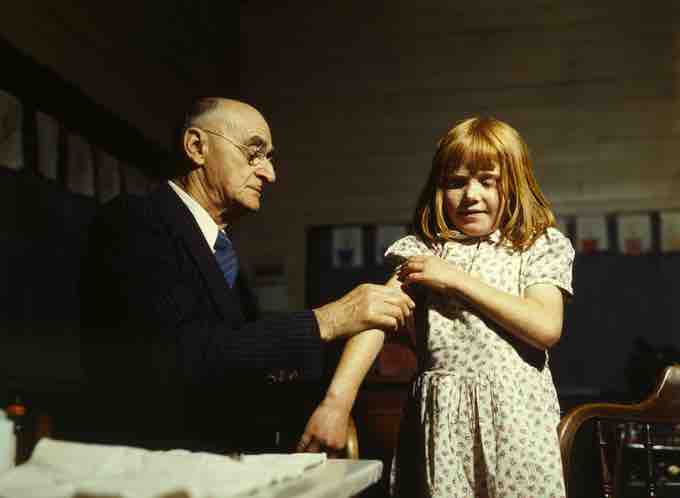Immunity is the state of protection against infectious disease conferred either through an immune response generated by immunization or previous infection, or by other non-immunological factors. There are two ways to acquire active resistance against invading microbes: active natural and active artificial.
Naturally acquired active immunity occurs when the person is exposed to a live pathogen, develops the disease, and becomes immune as a result of the primary immune response. Once a microbe penetrates the body's skin, mucous membranes, or other primary defenses, it interacts with the immune system. B-cells in the body produce antibodies that help to fight against the invading microbes. The adaptive immune response generated against the pathogen takes days or weeks to develop but may be long-lasting, or even lifelong. Wild infection, for example with hepatitis A virus (HAV) and subsequent recovery, gives rise to a natural active immune response usually leading to lifelong protection.
In a similar manner, administration of two doses of hepatitis A vaccine generates an acquired active immune response leading to long-lasting (possibly lifelong) protection. Immunization (commonly referred to as vaccination) is the deliberate induction of an immune response, and represents the single most effective manipulation of the immune system that scientists have developed . Immunizations are successful because they utilize the immune system's natural specificity as well as its inducibility. The principle behind immunization is to introduce an antigen, derived from a disease-causing organism, that stimulates the immune system to develop protective immunity against that organism, but which does not itself cause the pathogenic effects of that organism.

Typhoid vaccination
Immunization (commonly referred to as vaccination) is the deliberate induction of an immune response, and represents the single most effective manipulation of the immune system that scientists have developed.